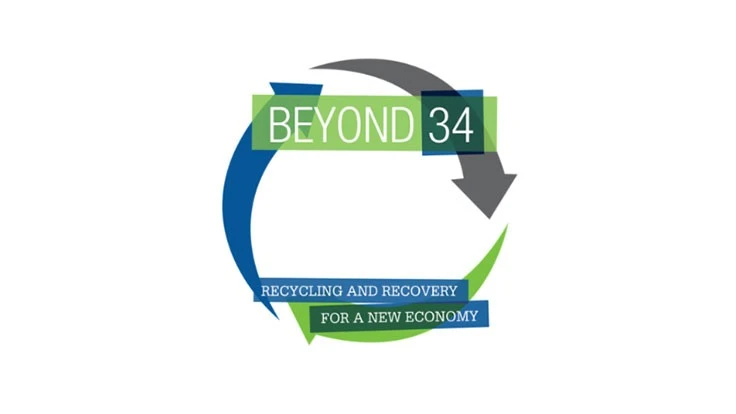
The U.S. Chamber of Commerce Foundation, Washington, has announced the expansion of its Beyond 34: Recycling and Recovery for a New Economy initiative. The expansion includes applying the Beyond 34 model in a second region and developing a suite of online tools to allow any community to implement the model.
Beyond 34, first implemented in Orlando, Florida, was developed to increase the current 34 percent recycling rate in the United States by providing a collaborative, data-driven model for local communities. Through the Orlando pilot, more than $100,000 was invested to implement projects designed to improve local recycling.
The program’s model has three phases: engage and convene stakeholders from a community’s recycling supply chain; provide the community with a detailed analysis of its waste management system and projects that will most effectively increase and improve recycling; and implement the identified projects with seed funding from Beyond 34 and other funds.
The U.S. Chamber of Commerce Foundation says the expansion involves applying a refined version of the Beyond 34 model in a second region based on findings from the Orlando pilot and developing a suite of online tools and resources so any community can learn about the model and apply it. The foundation says it will choose the second region in early 2019 and the expansion will continue through early 2021.
“The Beyond 34 model brings together a community’s private and public sectors and equips them with solutions to increase and improve recycling,” says Marc DeCourcey, senior vice president of the U.S. Chamber of Commerce Foundation. “The business community is increasingly setting ambitious waste reduction goals. The tremendous engagement we’ve received for Beyond 34 from the private sector shows that companies not only work within their own operations to reduce waste—they also want to help U.S. communities reduce their impact on the environment and boost local economies.”
The Rob and Melani Walton Sustainability Solutions Service at Arizona State University (ASU) will provide analysis and develop tools to help communities increase and improve their recycling efforts.
“To achieve real progress and develop a stronger future, everyone must bring their expertise and resources to the table,” says Patricia Reiter, executive director of the Rob and Melani Walton Sustainability Solutions Service at ASU. “We’re looking forward to enabling communities to advance their recycling efforts and move the country that much closer to breaking through the 34 percent recycling rate.”
The expansion is possible through the support of the Walmart Foundation, Walgreens Boots Alliance, and the Plastics Industry Association.
“The Beyond 34 initiative works to improve the ecosystem of waste prevention, reuse and recycling by first connecting leaders across the community,” says Karrie Denniston, senior director for sustainability for the Walmart Foundation. “We look forward to seeing how these communities can solve problems, test ideas and ultimately see a measurable change in the rate of materials being recycled.”
A recent U.S. Environmental Protection Agency (EPA) report found that in a single year, recycling and reuse activities in the United States account for 757,000 jobs, $36.6 billion in wages and $6.7 billion in tax revenue. Still, a number of challenges to recycling remain, such as falling commodity prices, contaminated recycling streams, strained government budgets and fewer markets for materials, the U.S. Chamber of Commerce Foundation says. Applying the Beyond 34 model helps communities overcome these challenges.
Latest from Recycling Today
- ReMA opposes European efforts seeking export restrictions for recyclables
- Fresh Perspective: Raj Bagaria
- Saica announces plans for second US site
- Update: Novelis produces first aluminum coil made fully from recycled end-of-life automotive scrap
- Aimplas doubles online course offerings
- Radius to be acquired by Toyota subsidiary
- Algoma EAF to start in April
- Erema sees strong demand for high-volume PET systems





